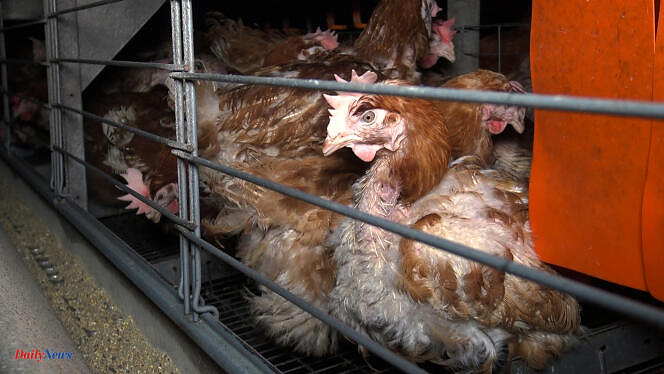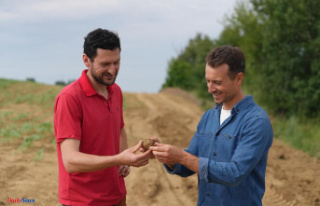A citizen collective filed a complaint on Monday March 18 against the European Commission for not having kept its commitment to legislate against cage farming, following a petition that exceeded one million signatures.
In addition to massively caged rabbits, half of the laying hens in the European Union (EU) are raised in cages, as are the majority of sows at some point in their lives. Ducks and geese are also caged to be force-fed. Cage farming is already banned in organic farming across the EU.
The citizens' committee of the For a New Era Without Cages initiative announced that it had "taken action against the European Commission which has not respected its commitment", by filing a "complaint with the Court of Justice of the EU". .
A European Citizens' Initiative (ECI) launched in 2018 to call for an end to cage farming, supported by a coalition of 170 NGOs coordinated by the organization Compassion in World Farming (CIWF), had raised nearly 1.4 million signatures. It forced the European executive to provide a response to this animal welfare issue, the necessary threshold of one million citizens having been reached.
“Three hundred million animals locked up every year”
The Commission declared in June 2021 that it was “responding positively” and committed to presenting a proposal by the end of 2023 aimed at gradually phasing out the use of cage systems for laying hens, sows, calves and rabbits. , chickens, quails, ducks and geese. Brussels said it wanted to begin a public consultation in 2022, with a view to integrating this project into the texts on animal welfare currently being revised. But the Commission ultimately only presented a very limited legislative draft in December 2023, which only concerns the transport times of animals intended for slaughter.
“With its inaction, the Commission disregards the suffering of more than 300 million animals locked up each year,” which hinders their natural behavior, underlined Léopoldine Charbonneaux, of the CIWF organization. Brussels “also betrays millions of European citizens”, who “believed that the initiative was a real democratic tool to influence the decision-making process”, added Ms. Charbonneaux.
Initiated after reminders remained unanswered from the Commission, “the legal action may take up to eighteen months to succeed, but we hope that it will be resolved as quickly as possible,” he told the Agency. France-Presse the CIWF, which considers that the commitment made in 2021 is “a sufficient basis” to be binding.
The Commission reported last week that it wanted to develop its future legislation on animal welfare in consultation with the agri-food sector, using more in-depth environmental, social and economic impact studies.












